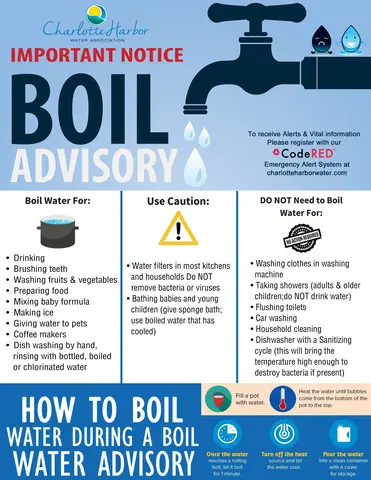Resumption Of Trump Tariffs: A European Economic Outlook

Table of Contents
Historical Context: The Impact of Previous Trump Tariffs
The initial imposition of Trump tariffs, beginning in 2018, targeted various sectors, significantly impacting European businesses. These tariffs, primarily focused on steel, aluminum, and other manufactured goods, triggered a wave of retaliatory measures from the EU and other trading partners, escalating trade tensions globally.
- Specific sectors most affected: The steel and aluminum industries bore the brunt of the initial tariffs, followed by significant impacts on the automotive sector and agricultural products. The automotive industry, a key player in the EU economy, faced substantial challenges due to increased import costs for parts and finished vehicles.
- Quantitative data showcasing economic losses: While precise figures are debated, studies suggest a measurable negative impact on European GDP growth and job losses, particularly in the aforementioned sectors. The exact quantifiable loss is difficult to isolate due to other simultaneous economic factors, but the impact was undeniably negative for affected industries. Research from organizations like the European Commission provides estimates of the economic fallout.
- Retaliatory measures taken by the EU: The EU responded with its own tariffs on American goods, leading to a tit-for-tat escalation that disrupted global trade flows and harmed businesses on both sides of the Atlantic. These retaliatory measures included tariffs on agricultural products like bourbon whiskey and Harley Davidson motorcycles.
Current Political Climate and Likelihood of Resumption
The current political situation in the US, particularly concerning trade policy, remains somewhat uncertain. While the specific likelihood of a full-scale resumption of Trump-era tariffs is difficult to predict, the possibility cannot be discounted. The rhetoric surrounding protectionism and trade imbalances persists, creating uncertainty for European businesses.
- Relevant political figures and their stances on tariffs: Certain political figures continue to advocate for protectionist policies, suggesting a potential for renewed tariff increases. Analyzing the statements and voting records of key policymakers provides insight into the potential for future trade actions.
- Recent statements or policy proposals suggesting a potential tariff increase: Monitoring official statements from the US administration and Congress provides crucial information regarding potential changes in trade policy. Any indications of revisiting previous tariff policies warrant close attention.
- Assessing the probability of a tariff resumption: The probability is influenced by numerous factors including the prevailing economic climate, domestic political pressures, and the ongoing relationship between the US and the EU. While the exact probability is hard to quantify, it is important for businesses to develop contingency plans.
The Role of the WTO and International Trade Agreements
The WTO plays a critical role in resolving trade disputes, and any resurgence of Trump tariffs would likely face legal challenges under existing international trade agreements. The EU would likely leverage the WTO dispute settlement mechanism to challenge any perceived unfair or discriminatory trade practices.
- Potential legal challenges to any tariff increases: The EU has the legal tools to challenge tariffs deemed to violate WTO rules, potentially leading to lengthy legal battles and potential compensation payments to affected European businesses.
- EU strategies for navigating the situation within international trade frameworks: The EU is likely to explore all available avenues within the WTO framework to mitigate the negative impacts of potential tariff increases, including seeking alliances with other countries facing similar challenges.
- Potential alliances with other countries to counter the impact of US tariffs: Building coalitions with other trading partners impacted by US tariffs could strengthen the EU's position and enhance its negotiating power.
Sector-Specific Impacts of Resumed Trump Tariffs
The potential resumption of Trump tariffs would have varying impacts across different European economic sectors. Some sectors, already weakened by the previous tariffs, would be disproportionately affected.
- Automotive industry: Increased tariffs would likely raise the cost of both importing and exporting automobiles, impacting sales, production, and employment within the European automotive sector and its intricate supply chains.
- Agricultural sector: The agricultural sector, a significant exporter to the US market, would face reduced market access and potential price declines. Specific products like cheese and wine could be particularly vulnerable.
- Manufacturing: Numerous European manufacturing sectors reliant on the US market for exports would experience reduced demand and profitability. This could lead to plant closures and job losses.
- Potential job losses and economic downturn in affected sectors: The overall impact could trigger a substantial economic downturn in affected sectors, leading to widespread job losses and reduced investment.
Mitigation Strategies for European Businesses
European businesses can adopt various strategies to mitigate the negative effects of potential tariff increases. Proactive planning and adaptability are key to survival.
- Diversifying export markets: Reducing reliance on the US market by expanding to other regions and exploring new export opportunities is crucial.
- Investing in technological advancements: Improving competitiveness through technological innovation can help offset increased costs and improve market positioning.
- Lobbying efforts to influence US trade policy: Active engagement in lobbying efforts to advocate for fairer trade practices is essential.
- Government support and aid packages for affected businesses: Seeking government support in the form of financial assistance and aid packages is crucial to protect affected businesses.
Conclusion
The potential resumption of Trump tariffs presents a serious challenge to the European economy. Understanding the historical impact, the current political context, and the potential sector-specific repercussions is crucial for mitigating the negative effects. European businesses must actively pursue diversification strategies, while the EU should engage in proactive diplomatic efforts and explore international collaborations to navigate this complex trade landscape. Ignoring the potential impact of renewed Trump Tariffs would be a significant oversight. Proactive planning and strategic adjustments are essential for ensuring European economic resilience in the face of this uncertainty. Staying informed about developments related to Trump tariffs and potential policy shifts is paramount for navigating this challenging trade environment.

Featured Posts
-
 Ogeechee Road Neighborhood On Boil Water Advisory What You Need To Know
May 13, 2025
Ogeechee Road Neighborhood On Boil Water Advisory What You Need To Know
May 13, 2025 -
 Sabalenka Through To Porsche Grand Prix Final After Paolini Victory
May 13, 2025
Sabalenka Through To Porsche Grand Prix Final After Paolini Victory
May 13, 2025 -
 Dzherard Btlr 8 Godini S Osinovenoto Mu Blgarsko Kuche
May 13, 2025
Dzherard Btlr 8 Godini S Osinovenoto Mu Blgarsko Kuche
May 13, 2025 -
 Nhl 2025 Draft Lottery New York San Jose Chicago Claim Top Spots
May 13, 2025
Nhl 2025 Draft Lottery New York San Jose Chicago Claim Top Spots
May 13, 2025 -
 Olympus Has Fallen Exploring The Films Success And Popularity
May 13, 2025
Olympus Has Fallen Exploring The Films Success And Popularity
May 13, 2025
